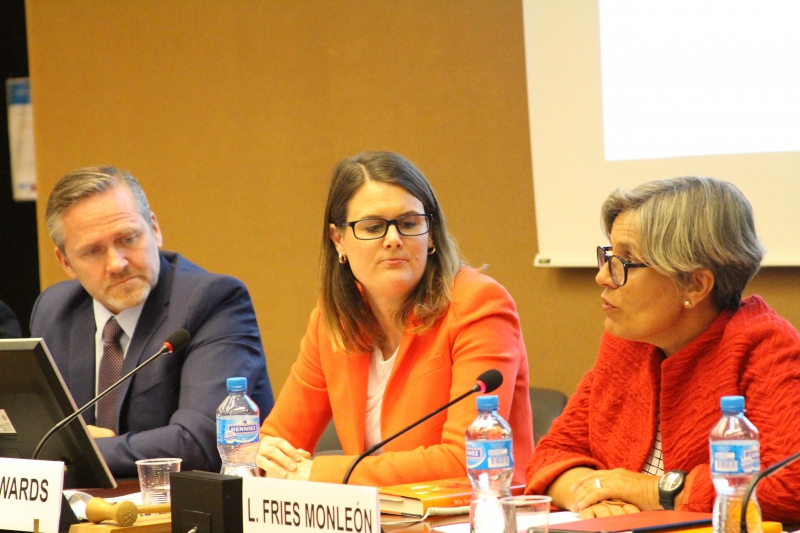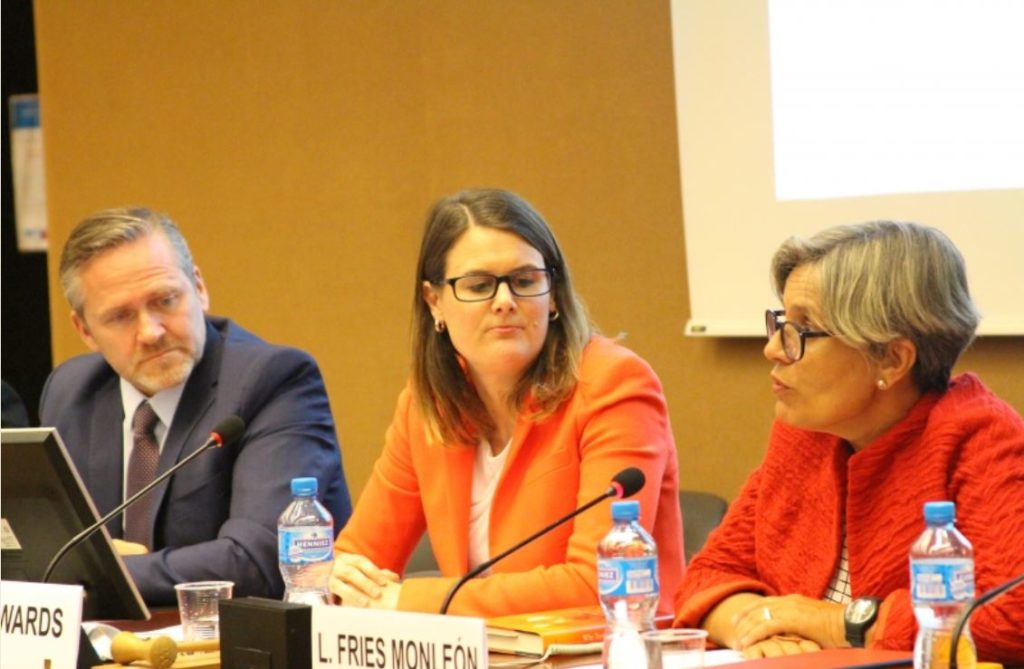
Location
Geneva, SwitzerlandAttendance
Public
Date & Time
Start: 27/02/17 13:00
End: 27/02/17 15:00
Around 70 participants from 35 States, the UN, and civil society attended CTI’s side event on “Influencing public perceptions: why torture must be rejected” which took place on Monday 27 February in the margins of the high level segment of the first day of the 34th session of the Human […]

Around 70 participants from 35 States, the UN, and civil society attended CTI’s side event on “Influencing public perceptions: why torture must be rejected” which took place on Monday 27 February in the margins of the high level segment of the first day of the 34th session of the Human Rights Council.
Based on a number of recent surveys, including surveys undertaken by the ICRC/Gallup (2016), Pew Research Center (2016) and Amnesty International (2014), the panel hoped to put on the table some of the issues surrounding an increase in public tolerance for the use of torture in certain situations, such as in the context of armed conflict or terrorism.
The event was opened by the Danish Minister for Foreign Affairs, H.E. Mr. Anders Samuelsen, who expressed his firm belief in the absolute prohibition on torture and his concern about the increasing acceptability of torture in some countries and contexts. Chile’s Undersecretary for Human Rights, Ms. Lorena Fries Monleón, shared Chile’s own experiences as a country that continues to deal with and recover from a past dictatorship that used torture systematically but that has also come a long way since that era in securing governmental, institutional and civil society denunciation of torture. In order to further prevent torture, Chile has started a process of defining torture in its criminal code, establishing a national action plan and a National Preventive Mechanism upon the recommendation of the Sub-Committee for Prevention of Torture, and providing redress and reparations for victims of torture.
Correspondent, Ms. Catherine Fiankan Bokonga of France 24, explained that as journalists themselves were in increasing numbers targets of crime and torture, it was challenging to report on these issues. Fiankan Bokonga stressed that nevertheless the press and media need to remain vigilant about the growing public approval of the use of torture, and called for strengthened support to journalists and correspondents in order to allow them to carry out their job.
From a neuroscientific perspective and on the particular issue of information gathering, Professor of Experimental Brain Research, Mr. Shane O’Mara, shared research that shows that there is no reliable scientific evidence favorably supporting the efficacy of torture. O’Mara explained that imposing stressors (e.g. hunger, thirst, cold, fear, drowning, deprivation etc.) on the brain with the aim of forcing confessions or subtracting information interacts negatively with motivation, memory, and cognition. In other words, stress directly impacts the ability of the brain to remember, thus undermining investigations using such harsh interrogation techniques and leading to unsafe convictions. O’Mara stressed that interrogation is a specialist activity and that proper training is essential.

